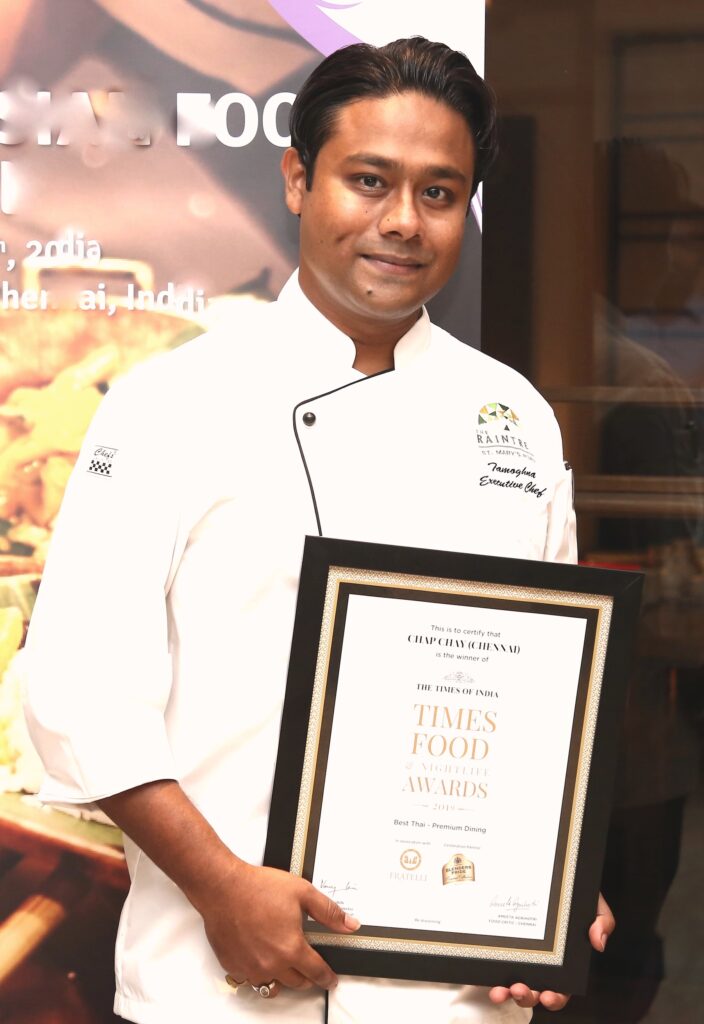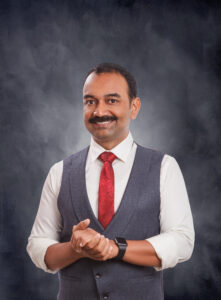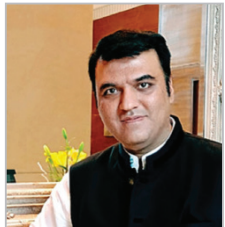Tamoghna Chakraborty, Executive Chef at Raintree St. Mary’s Road Chennai

Tamoghna Chakraborty is a graduate from IHM, Goa; and one of the few fortunate people who get their first job at The Leela Hotels. He got into Leela, Goa through the campus recruitment. Tamoghna joined there as a Management trainee and went through pieces of training for a various cuisines, grill sections, gardemanger, bakery, and pastry etc but finally chose to be a specialist in Italian & European Cuisine. He has also had the experience of working with Taj Fiherman’s Cove, Chennai; Four Seasons Hotel, Mumbai; Grand Hyatt, Goa; The Leela, Chennai; ITC Park Heraton; Intercontinental Marine Drive; Mumbai; and finally, Raintree, St. Mary’s. Road, Chennai. Tamoghna has also explored various cuisines such as Thai, Japanese, and Mediterranean etc.
According to Tamoghna, being a Chef is a fantastic profession. It’s one of the most interesting professions in terms of creativity and innovation. Unlike other jobs in the society it’s not so monotonous; chefs get a chance to create something new in every occasion. And taking care of somebody’s food needs which is the primary needs of any living creature, is a very prestigious thing.
Being a graduate from IHM, it was bound to understand what changes Tamoghna as a person would want to see in the curriculum at IHM. He shares, “Since last 15 years I have not been in touch with IHM. So, my opinion is based on what I learned in college back in my days and what I see in the industry. There is a big gap between what you learn in IHM and what is the industry standard. To kill that gap, the teachers need to undergo through various workshops on a regular interval in different 5* luxury hotels to experience and observe the changes and follow new trends. Even for the students, as a part of their academic curriculum they should multiple workshop to be carried out in 5 star hotel, they have to understand the professional kitchen, how it works, the shift timings, crunch time situation etc . Outdoor catering in college does not cover those parts much. It has to be more in detail. Like in hotel mgmt colleges, you don’t see a lot of products that are used in the mainstream hotel and since the fees are much high in today’s time, Management should be able to give this exposure to the students.”
Being a chef for so many years and experiencing various cuisines and cooking techniques Tamoghna believes that there are a few changes that have to be brought about in the Hospitality Industry and the way that chefs these days preparing the food. Since the boom in the industry, the use of cream, butter, aromat etc has increased way too much, it has started tampering with the gastronomy of a person. The use of chemicals has also increased in the modern cooking and techniques of the Chefs. Tamoghna believes that this should be changed, and we must incorporate the culture of healthy cooking, using of fresh ingredients & locally sourced products. As Ayurveda was the base of the Indian culture, and it was an ancient way of healing humans with herbs, why not revamp it by using Ayurvedic herds for marinating and in cooking dihes. However it needs a bit of research and experimentation. Tamoghna also wants to explore sea vegetables, which he believes that the Japanese people have been using effectively. He aspires to research this topic in the upcoming years.
Tamoghna aims to achieve and create a greater impact on the Hospitality industry. He also wihes to either be a celebrity chef or the Executive chef of a luxury organization, which he things is not only the definition of success but also a milestone to achieve in career and make it flow smoothly is the most challenging part of it. But he’d prefer to be a celebrity chef because of the amount of recognition and limelight you get and the opportunity you get to travel around the world, from fine dining restaurant to remote villages and communities, gather various cooking skills and off bit experiences. So, it doesn’t matter actually of cooking in the kitchen or cooking in front of the camera. Of course, cooking in the kitchen is much difficult and tough. When you cook in front of the camera you just have to act, when you hold the spoon to your mouth and react as if you are enjoying it, the actual taste doesn’t mattar, as its the virtual feelings for the viewers and while cooking in front of the camera, you may have 5- 6 retakes but in real life, you just have 15 minutes.
“Most of the kitchens are open kitchens now, the chefs can see the guest’s reaction. So, the faster the customer puts the spoon in his mouth or the expressions tell you if the guest has liked your food or not. Sometimes, guests are also very polite and they’d give you a compliment, or sometimes the waiter asks for reviews so that time they mark it excellent. But as a chef, if you want to see the real verdict, you have to see the first time when the customer puts the spoon in his mouth. That is the feeling of satisfaction. This is the first part. The second verdict is when the plate is in for washing, if the plate is clean and empty, and you probably don’t have to wash it, then you are successful as a chef. When a guest comes in, he pays for it, but even after paying for it, he leaves the food, it is a big slap to the chef.”
Tamoghna has a message for people who are already pursuing hotel management. We all know that nowadays, students are more interested in YouTube or internet-based cooking, learning or presentation but still, the secret of success is knowing the base. Back in 2002, when there was not much of internet, we were completely dependent on learning from the books or from a Experience chef under whom we were working. We use to work hard and multiple times to acquire those skills from the Chefs. But nowadays since there are various options on the internet, apps like Instagram, Pinterest the youngsters are exposed more on food photography, the fancy part of it but what they don’t understand is that, it is just the photography, it is the edited version. I have seen a lot of juniors come in for trial, and their trial looks beautiful because their concentration is on the presentation and the colour combination, they are more focused on replicate the Instagram picture, But due to this the essence and the taste are lost in most of the sometimes.
Just because we have to have a certain color palette, we cannot add things that do not go with each other. All these things and basic techniques are missing nowadays. Tamoghna’s career has gone through western cuisine, a little bit of Japanese cuisine, Thai cuisine. And he shares that in western cuisine, certain dihes are the authentic tried and tested dihes, but people nowadays don’t even know them, because of their interest in good looking photogenic dihes. So, his advice to anyone trying to learn right now is that they must go through the books and know the basics under experienced chefs.
Also, in present era, the trend and the tendency of the young chefs are to change the company within 1-1½ year for faster growth. However, a book named Catalyst says that every learning circle should be 4-5 years, if not at least a minimum of 3 years. So, if a person joins a new place, the first 6 months of his productivity is 0, you are learning the system, you are new to the company, you are adapting. After these 6 months, you actually start exploring your skills and after an year probably you show productivity for the organisation but that is when you are already in a search of moving on to the next job. Expertise does matter, and it comes with experience. Cooking 1 plates of biryani or 500, the rice consistency, the aroma, and the taste should remain the same. But that comes with experience. In past if we noticed, many chefs join the industry without taking any kind of formal education in hotel management, they just slowly move up with experience & skills. But now, when students are pursuing hotel management, they think that the moment they are out of college, they will land up in the industry and immediately start performing the same way they see in a lot of cooking shows. They don’t understand that to achieve that place you need a lot of practice, a lot of hard work, and a lot of failures.
“They always say that to become a chef was their dream in the time of interview, but within 2 years when they get slogged, they leave the industry. Because they are not mentally ready, what they expect is the colorful life that they see on the television. So, at the end, I would like to tell them that your basics have to be strong; there is no other remedy to it. And there is no other way than hard work and practice. You may have to constantly working more hours, may be get a break after 10-12 days of work and that is how the first 6-8 years of your career should be. It will make you strong and seasoned, and if you can continue it for those 8-9 tough years, then you will have a great career, I believe, better than an engineer. Those 8 years you are supposed to build yourself. In these 8-9 years, you learn to cook, understand the market, learn the customer demands and you understand the finest cooking. Then the market is for you. You can easily earn more than a lakh.
Tamoghna believes that Satisfaction is the ultimate achievement a person can have in his life. He feels that satisfaction is the greatest measure for success and if a person is satisfied with his life, he is successful.
A need for comparison does not arise. Even when you are a junior chef, if you get 5 compliments a day, your higher-ups can already see you are a good chef.












May your dedicated effort, reaps you fruitful life with lot of abundance that footfall before you….keep going..